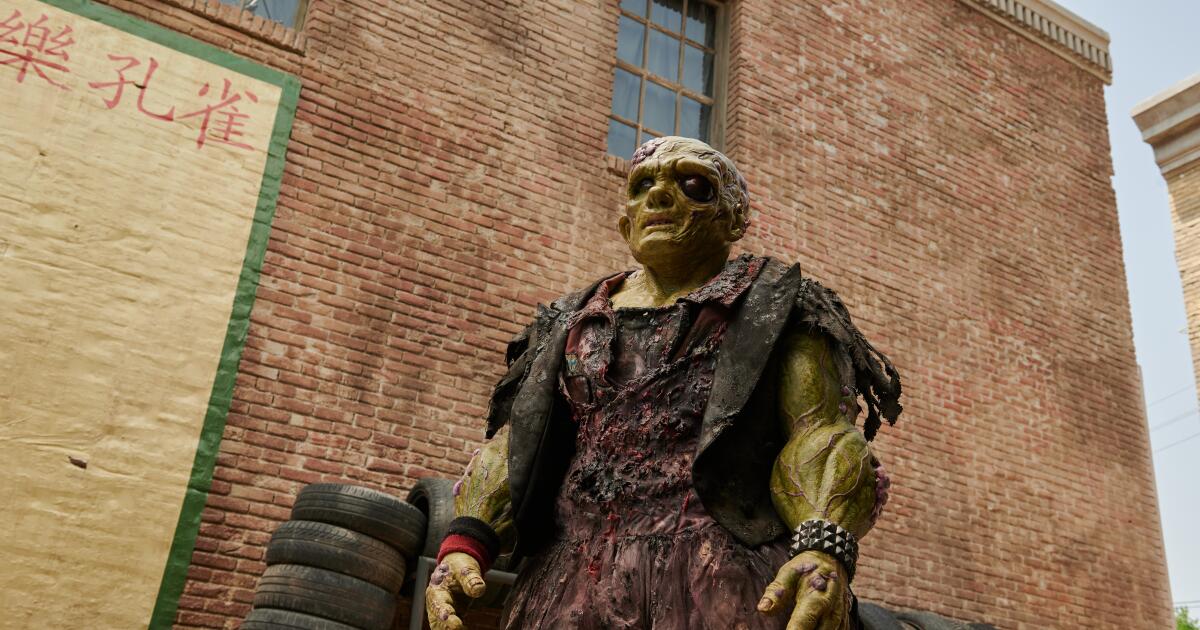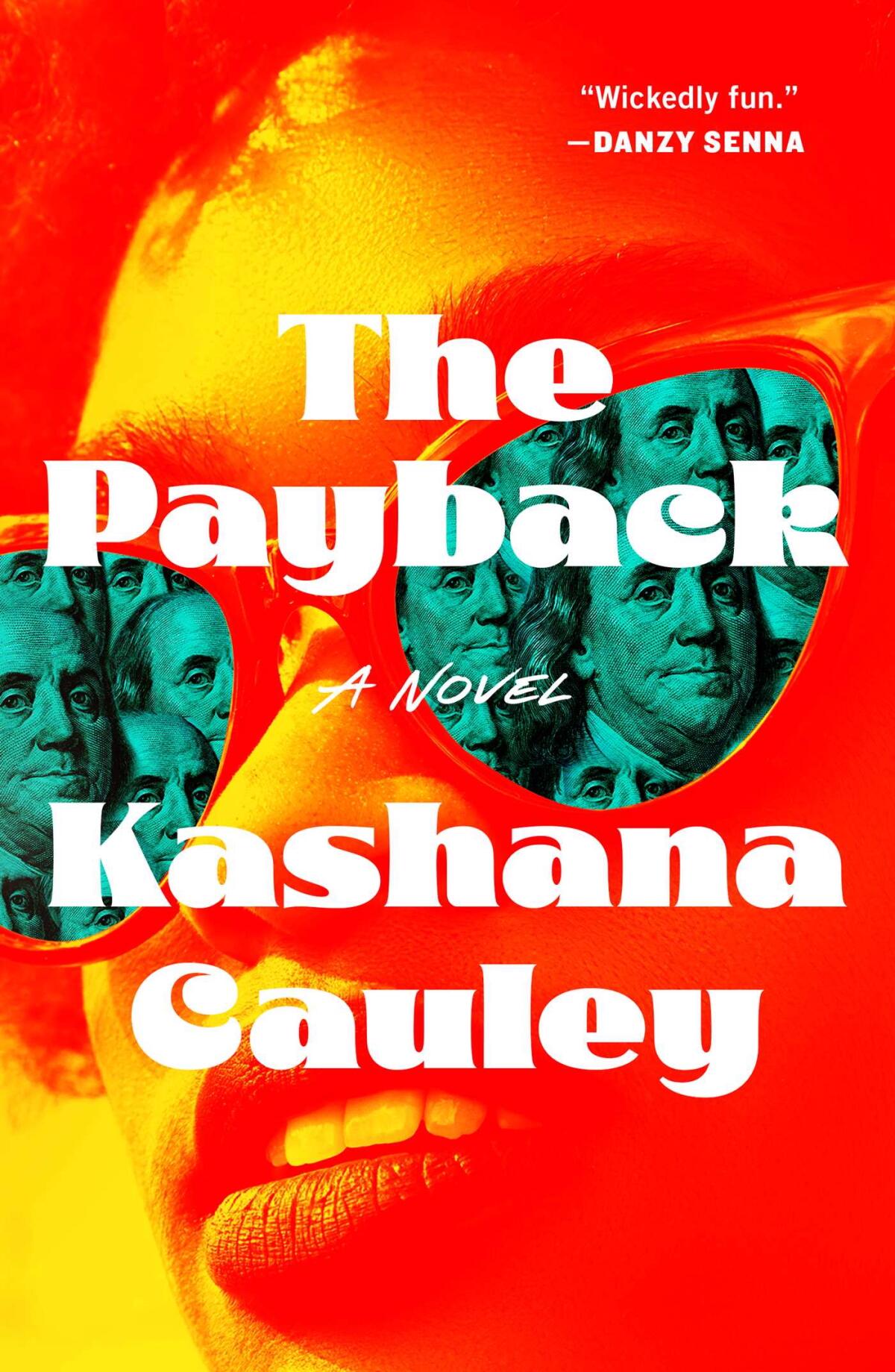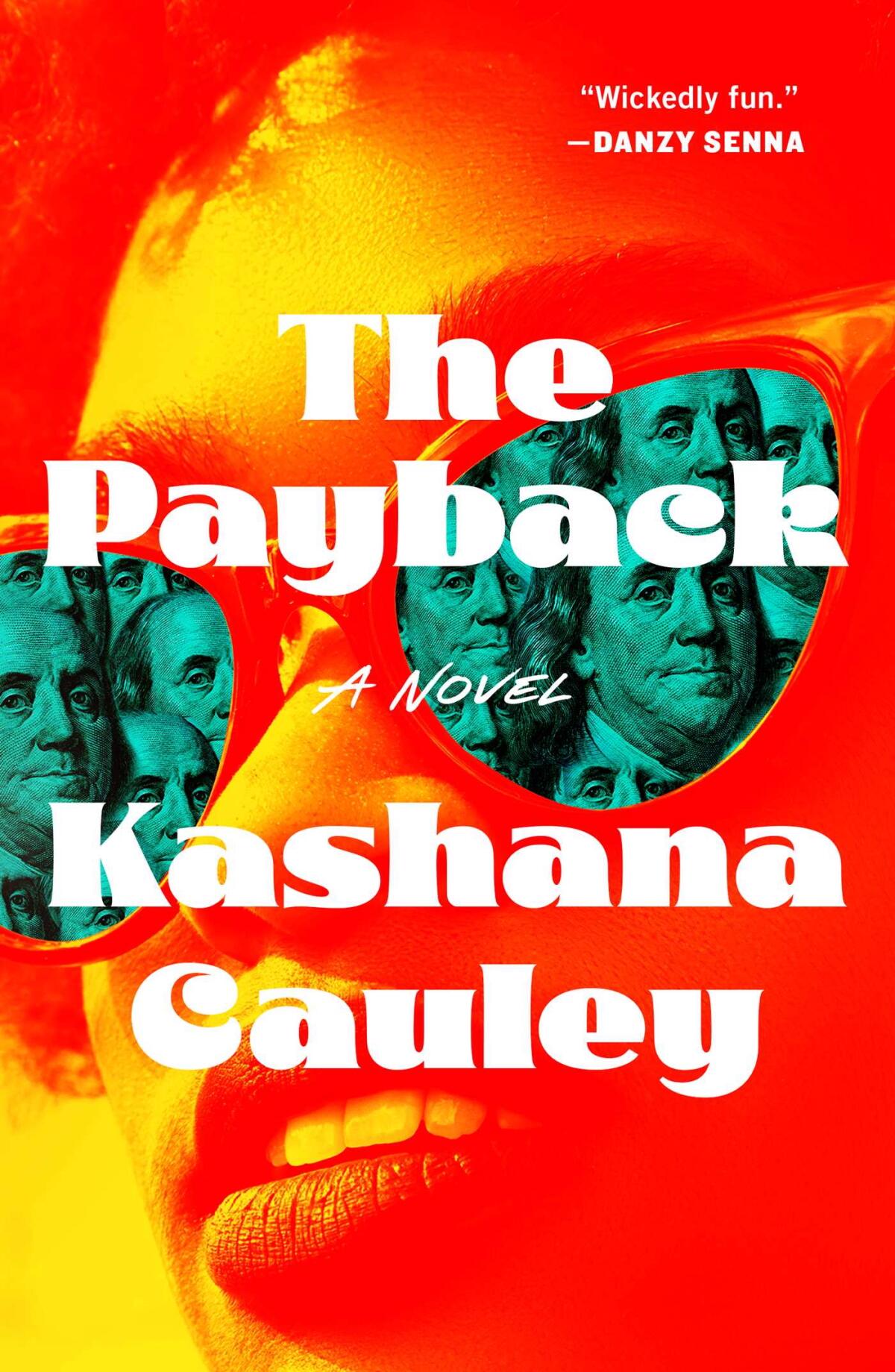‘The Toxic Avenger’ review: A sludgy antihero wants corporate payback
Nostalgia for extreme tackiness is surely one of the funnier outcomes of a cult film’s success. (Does one sigh wistfully at such memories or smile through a grimace?) The gleeful cine-garbage factory Troma is, at 50 years and counting, now a hallowed name in outsider movie circles, with much of its reputation stemming from an ’80s output that seemed appropriate for the Reagan era. That especially goes for its 1984 monster comedy “The Toxic Avenger,” about a head-smashing vigilante forged from green chemical sludge. It was antipollution if you wanted to be charitable, but really, it was anti-everything. Haste plus waste, made for very bad taste.
Now, of course, we all recycle trash in our daily lives. But does it work as a film principle? Troma aficionado Macon Blair, a key on-and-offscreen collaborator of Jeremy Saulnier (“Blue Ruin,” “Hold the Dark”) and a Sundance-winning writer-director in his own right (“I Don’t Feel At Home in This World Anymore”), has taken up the challenge with his own “The Toxic Avenger,” starring Peter Dinklage as this version’s mutant hero, Toxie, and maybe the worst thing one could say about it is that it’s well-made.
Cue the disconnect when, expecting to be offended by garish, cheap filmmaking, one realizes that so much of the Troma style — gratuitous gore, filthy mouths, blunt-force parody — is ubiquitous to any regular genre diet in film or TV. That leaves matters of artistic character and there’s no getting around the fact that Blair has made the conscious decision that his “Toxic Avenger,” though rude, violent and goofy to a fault, wouldn’t look bad. It’s even got appealing stars: Kevin Bacon, Elijah Wood, Taylour Paige. Is nothing sacred?
But when even the biggest-budgeted movies now look terrible, everything’s already upside-down. What Blair has assembled, then, is diverting homage-schlock: a one-joke Halloween costume you’ll never wear again. Only this time, it asserts its environmental consciousness like a middle finger. The story’s Big Pharma outfit, called BTH, is a full-on villainous entity now, run by rapacious CEO Bob Garbinger (Bacon) who’s pumping consumers with harmful lifestyle drugs when he isn’t hiring a dim-witted punk band to kill a journalist (Paige) trying to expose him. (A muckraking mentor, seen only at the beginning, is called Mel Ferd, a shout-out to the original Toxie’s name.)
And yet things are also, in Blair’s setup, anchored in emotional sincerity (gasp). Dinklage’s affectingly drawn Winston Goose is no mere browbeaten BTH janitor — he’s a soft-spoken widower struggling to raise a stepson (Jacob Tremblay). Winston has also been diagnosed with a terminal illness and medical insurance won’t cover it. His Kafkaesque phone call about his employee plan is almost too realistic to find funny.
Trying to rob his employer one night with a mop dipped in toxic muck, Winston is shot and thrown into said slop. Instead of killing him, though, it transforms Winston into a disfigured creature (performer Luisa Guerreiro does the post-mutation suit work) with a removable eye, blood running blue, and — in a Tromatic touch — acid for urine. His gory dispatching of criminals notwithstanding, the mop-wielding Toxie becomes a community hero for calling out BTH as “ruiners.” But it also puts a target on his splotchy, misshapen head, especially when Garbinger senses in his nemesis an exploitable biofuel.
Whether poking at superhero cliches (there’s a choice post-credit scene) or trying to be kill-clever, it’s all in dopey, gruesome fun, although, to reiterate, a “Toxic Avenger” even normies can enjoy doesn’t exactly sound like a true Troma tribute. Which may explain why its trashmonger founder (and original “Toxic” co-creator) Lloyd Kaufman’s cameo, late in the film, is him crankily muttering next to Blair, who looks just as peeved. They probably had a blast filming it.
‘The Toxic Avenger’
Not rated
Running time: 1 hour, 42 minutes
Playing: In wide release Friday, Aug. 29


